Alasdair Gray’s Poor Things is a complex reimagining of Mary Shelley’s classic novel, Frankenstein, with a sprinkle of the social polishing of George Bernard Shaw’s Pygmalion. In place of Doctor Frankenstein, the novel follows the scientific exploits of Godwin Baxter. Rather than a frightful monster, Baxter transplants the brain of an infant into the body of a young woman named Bella. What follows is not as horrifying a tale as Doctor’ Frankenstein’s, but one that leaves the reader questioning if Bella is better off now than she was before.
Director Yorgos Lanthimos has adapted the Poor Things novel into a film of the same name, and it's expected to do well at the 2024 Oscars.
If you’re looking for your next favorite science fiction novel, or need a good retelling of an old favorite, check out the titles below.

Lanark
Another influential novel by Alasdair Gray, Lanark is a great choice for fans of Gray’s rhetoric, social commentary, and science fiction. In it, readers experience the psychological growth of both Thaw and Lanark, landmarked by the convoluted idea of humankind’s ability (or rather, inability) to love.
The novel explores various themes, as well as multiple philosophies, such as Gnosticism, to convey its overarching personal and political message. Similarly to the way we wonder if Bella is better off post-transplant, Lanark leaves us wondering if, maybe, it would benefit us never to love at all.
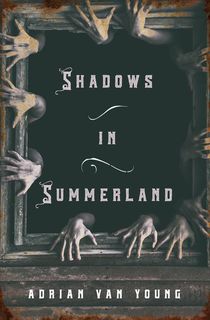
Shadows in Summerland
The mid-19th century saw a sharp and rapid rise in Spiritualism—the belief that those that have passed on can still communicate with the living with the help of a medium. This belief was popular not only with the average citizen, but with several well-known names such as Thomas Edison, Sir Arthur Conan Doyle, and Queen Victoria. The interest in communicating with the dead was spurred on by both scientific advancements, and the work of several unscrupulous con artists.
Shadows in Summerland is based on the lives of two such hucksters. Using the art of photography, which in the 1850s was still in its infancy, William H. Mumler makes a living by capturing images of spirits. But as the popularity of the Mumlers grows, so, too, does the attention of other ne'er do wells.
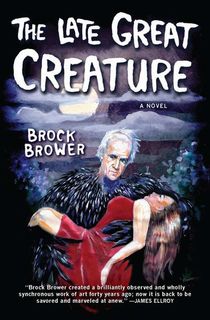
The Late Great Creature
This pick is perfect if you’re a fan of Edgar Allen Poe, the film Birdman or (The Unexpected Virtue of Ignorance), or if you’re just looking for a good vintage horror read.
A Hollywood Horror Has-Been is making one last bid for immortality. Simon Moro was a well-known name in 30s horror films, but his fame has since faded. Now, he’s making his final film: an adaptation of Edgar Allen Poe’s The Raven, simply titled “Raven!”
Told from the points of view of the film’s writer, the director, and Moro himself, The Last Great Creature follows the production of his final film, which leads to a shocking and deadly climax.
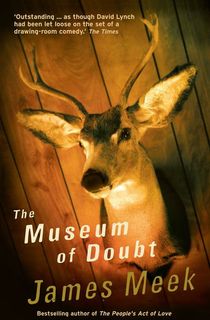
The Museum of Doubt
If you’re looking for stories that creep up on you with a cool dread, Meek’s collection of short stories is the perfect starting point. The Museum of Doubt plays with familiar fears and fables, intertwining them with an absurdist suburban temperament.
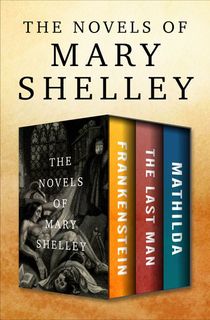
The Novels of Mary Shelley
Mary Wollstonecraft Shelley lived an unquestionably unorthodox life. She’s widely regarded as the mother of science fiction, and with good reason. When a damp summer at Lake Geneva prompted Lord Byron to issue a morbid writing challenge to his friends, several horror stories were produced. While it took some time for Mary to land on a subject, the novel that her idea produced became one of the most well-known science fiction stories in history. Shelley would follow it up with several novels, short stories, biographies, and poems.
The tale of Frankenstein begins on a ship bound for the North Pole. Captain Robert Walton comes upon Victor Frankenstein (I will not add Doctor because, spoiler alert, he never completes his doctorate!). Frankenstein is weak and unwell, on the run from the terrifying monster that he has brought to life.
Shelley continued to make history with The Last Man, one of the first published pieces of dystopian fiction. Published in 1826, The Last Man explores the all-too familiar circumstances that may befall the world in the event of global pandemic—but in this case, it becomes an extinction-level event. The novel tells the tale of Lionel Verney, the last man left alive on Earth in the year 2073.
Having lost her own mother in childbirth, Mary Shelley drew from personal experience when she wrote Mathilda. The novella tells the story of a young woman who loses her mother at a young age, only to have her father’s affections turn toward her in his grief. The scandalous theme of incest kept the controversial novella from being published during her lifetime, as her father and publisher refused to publish or return the only copy that she had written to her.
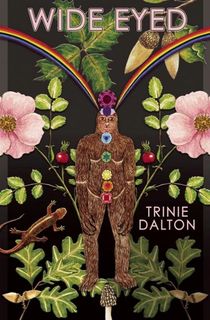
Wide Eyed
Dalton’s collection of short stories has the uncanny ability to draw you in and hold you in equal measures of fear and fascination. The stories in Wide Eyed encapsulate the awkward roil and confusion that we all feel as we’re growing up.

What Moves the Dead
Far less campy than “The Raven” retelling in The Late Great Creature, Kingfisher's What Moves the Dead is an enthralling retelling of Poe’s short story, “The Fall of the House of Usher.”
A retired soldier, Lieutenant Alex Easton is trying to readjust to civilian life when he receives a disturbing letter: his childhood friend, Madeline Usher, is gravely ill. When Easton joins her, he finds that not only is she ill, but her brother, Roderick, seems to be doing just as poorly.
Easton begins to pick apart the illness that has befallen the siblings with the help of a friend of Roderick’s, Easton’s servant, and a mycologist named Eugenia Potter.

Found Audio
Found Audio has a quiet eeriness that sneaks up on you. This book is perfect for fans of podcasts like The White Vault, The Left Right Game, and Limetown.
When an audio analyst is given a set of audio tapes, she uncovers one man’s pursuit of the fabled “City of Dreams." As she analyzes and logs the details of the tapes, she can’t help but speculate about the origins of the mysterious recordings.

How to Be Eaten
Adelmann’s How to Be Eaten has the zip of Grady’s Hendrix’s The Final Girl Support Group.
Ashlee, Bernice, Gretel, Raina, and Ruby are all part of a support group. All of their stories sound just a little familiar—Adelmann has retooled the fairy tales that we all grew up with into modern traumas. Their little group has been brought together by a therapist to explore each of their issues, but airing their grievances may cause them more harm than good in this darkly comic novel.
Featured image via Poor Things/Searchlight Pictures



